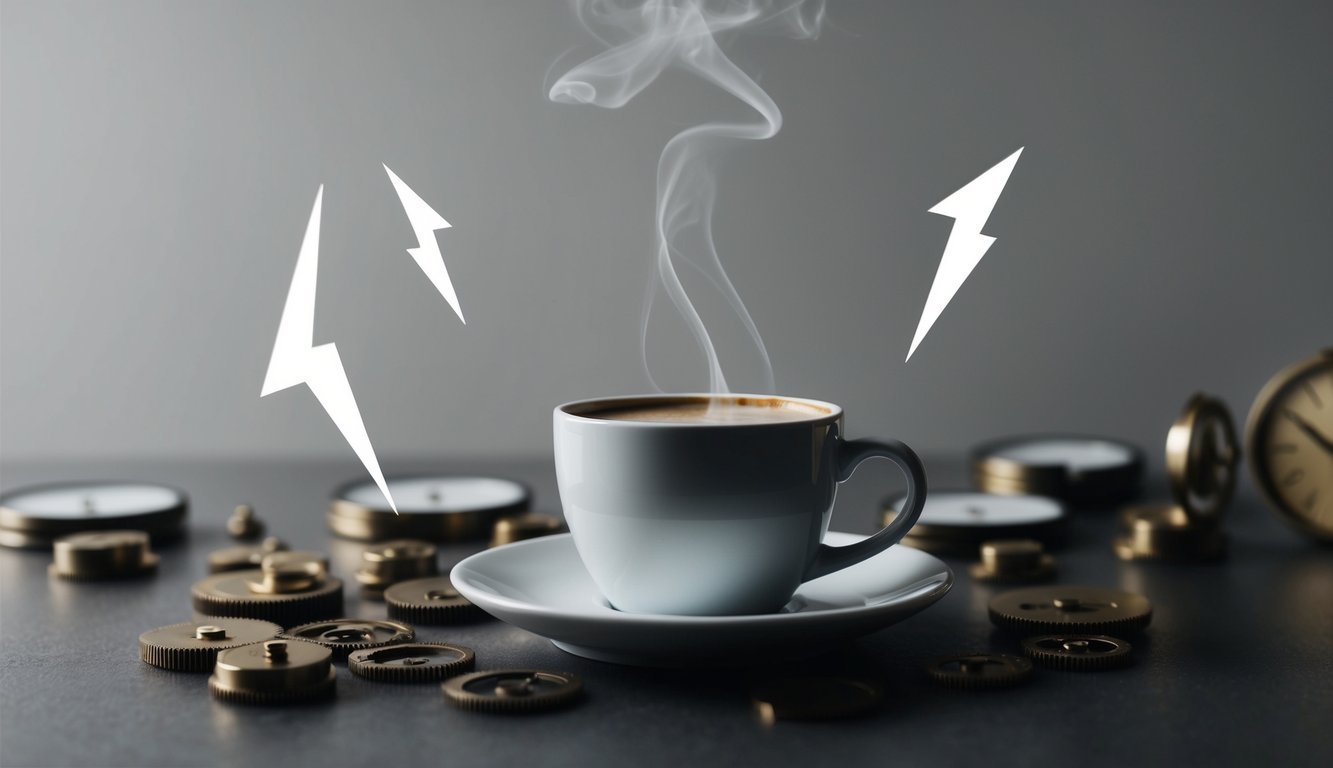PsychNewsDaily Publishers
100 Summit Drive
Burlington, MA, 01803
Telephone: (320) 349-2484
PsychNewsDaily Publishers
100 Summit Drive
Burlington, MA, 01803
Telephone: (320) 349-2484
A study in Spain found that 6 mg/kg caffeine improved reaction times in healthy young adults, while increasing feelings of nervousness and energy levels.


A recent study in Spain investigated the effects of caffeine on cognitive performance, finding that an intake of 6 mg/kg significantly improved reaction times across various tasks. Participants noted an increase in feelings of nervousness, alertness, and overall activity. The results were published in the European Journal of Nutrition.
Caffeine is a naturally occurring stimulant found in beverages like coffee, tea, energy drinks, and even chocolate. It works by blocking adenosine, a neurotransmitter that promotes sleep, which leads to enhanced alertness and vigilance. After consumption, caffeine is quickly absorbed into the bloodstream, typically producing effects within minutes.
Recognized for its capacity to sharpen focus, boost reaction times, and reduce fatigue, caffeine is generally considered safe in moderate amounts. However, excessive intake can cause negative effects such as jitteriness, increased heart rates, and insomnia. As one of the most widely consumed psychoactive substances, caffeine plays a significant role in cultural practices and the daily routines of many people worldwide.
The primary objective of the study, led by María Ramírez-delaCruz and her research team, was to examine the immediate effects of different caffeine doses (0, 3, or 6 mg/kg) on the cognitive abilities of healthy, physically active people. The researchers hypothesized that caffeine would enhance cognitive function, predicting that the 3 mg/kg dosage would produce the best outcomes.
The study involved 29 healthy young adults, including 15 men, with an average age of 22 years. Each participant underwent three trials, consuming capsules with varying caffeine doses based on their body weight: one at 3 mg/kg, another at 6 mg/kg, and a third containing no caffeine. Participants were kept unaware of the specific dose they received, and the order of dose administration was randomized to prevent bias.
During each session, after taking their assigned capsule, participants performed a series of tests to evaluate reaction time using the Dynavision™ D2 Visuomotor Device. Additionally, they assessed visual acuity related to hand-eye coordination and anticipation through the Bassin Anticipation Timer, sustained attention using the “Go/No-Go Test” and “Eriksen Flanker Test,” and memory through specially designed word lists.
The findings revealed a significant improvement in reaction times following the consumption of the 6 mg/kg caffeine dose, while the 3 mg/kg dose did not result in any benefits. Caffeine also showed no significant effects on anticipation, sustained attention, or memory.
People who took the 6 mg/kg caffeine dose reported a marked increase in nervousness and energy levels, leading to heightened activity. The researchers concluded that acute intake of 6 mg/kg of caffeine effectively improved reaction time in tests conducted with the Dynavision™ D2 device. This dosage was linked to increased side effects, primarily elevated levels of activeness and nervousness.
While this research provides valuable insights into caffeine’s effects on cognitive performance, it is crucial to note that the sample size was relatively small and comprised exclusively of young adults. Therefore, the effects may not be applicable to different age groups or demographics.
The investigation, titled “Effects of different doses of caffeine on cognitive performance in healthy physically active people,” was conducted by María Ramírez-delaCruz, Paula Esteban-García, Pablo Abián, Alfredo Bravo-Sánchez, Inés Piñas-Bonilla, and Javier Abián-Vicén.
“`